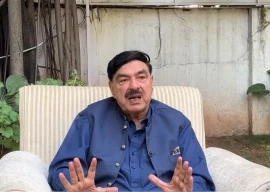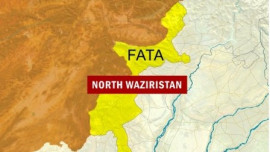
There is a little awareness of the 2004 law on honour killings. People at large either do not know of it, or the specifics of the law. But what is far worse is that this ignorance also exists within the fundamental players in the judiciary, police, lawyers. This was revealed in a pilot study on “Honour Killings in Pakistan and Compliance of Law”, launched on Wednesday at a local hotel by Aurat Foundation’s Legislative Watch Programme for Women’s Empowerment.
The report says that the police are often unwilling to implement the law due to overwhelming social acceptance of the act and the influence of the power holders. Often they are reluctant to take the case forward, as most cases are settled out of court.
The police often try to bring about this negotiation themselves, as they feel that it is for the benefit of both parties to avoid the hassle of a court case.
Maliha Zia Lari, the author of the report and a practicing lawyer and researcher on human rights, said that the report aims to take a closer look at the actual implementation of the honour killing act; it focuses on not just the numbers of honour killings quoted in media, but also examines the actual effects on the ground.
“Hundreds of women across the county continue to be killed every year, while the murderers go scot free. With the law in place, cases should have decreased drastically, but the problem continues to exist,” she said.
Lari listed the lack of court data, lack of other consolidated data, categorisation of FIRs, and the reluctance of persons to comment on honour killings, lack of definition of “grave and sudden provocation”, and the fact that abettors are not held liable among the reasons.
She said that according to Aurat Foundation’s statistics, 557 women were killed in the name of ‘honour’ in Pakistan in 2010, whereas 604 were killed in 2009 and 475 were killed in 2008.
The study showed that a lot of cases were highlighted in the media, but were not reported to the police, with many that were registered not being classified as honour killings.
The language used in the FIRs is not gender sensitive. She also pointed to the fact that courts usually give decisions against the victim by using the provision of “grave and sudden provocation”.
Another factor hindering the compliance with the law was the fact that most honour crimes are committed by family members. Hence family members are “unwilling” to lose another family member and end up compromising.
Tahira Abdullah said the honour killing law was made with the wrong intentions and urged the tabling of a revised honour killings bill, rectifying errors of omission.
“Honour killing laws and the laws of Qisas and Diyat contradict each other. Therefore, the government should immediately repeal the Qisas and Diyat ordinance along with jirgas and panchayats. Without this, it will not be able to eliminate violence against women from the country,” she said.
The state must become ‘wali’ on behalf of the victim to register an FIR against the killer, she urged.
Abdullah also pointed out the lack of authentic data on honour killing. While analysing the study, she said that the only thing it lacks is that it did not cover any districts from the Seraiki belt (Southern Punjab), where she believes the practice is most prevalent. She also criticised implementing bodies, saying that almost 77% of honour killings cases involving the murder of a woman end in acquittal of the accused.
Norwegian Ambassador Cecilie Landsverk referred to the increase in honour killings as reported in the pilot study while opining that there is a need to understand when the honour killing phenomenon became ingrained in Pakistani society and if it is actually increasing in modern times.
Published in The Express Tribune, January 5th, 2012.



1731655243-0/BeFunky-collage-(61)1731655243-0-165x106.webp)


1731656720-0/Copy-of-Untitled-(44)1731656720-0-270x192.webp)
1731651715-0/Express-Tribune-(1)1731651715-0-270x192.webp)









COMMENTS
Comments are moderated and generally will be posted if they are on-topic and not abusive.
For more information, please see our Comments FAQ